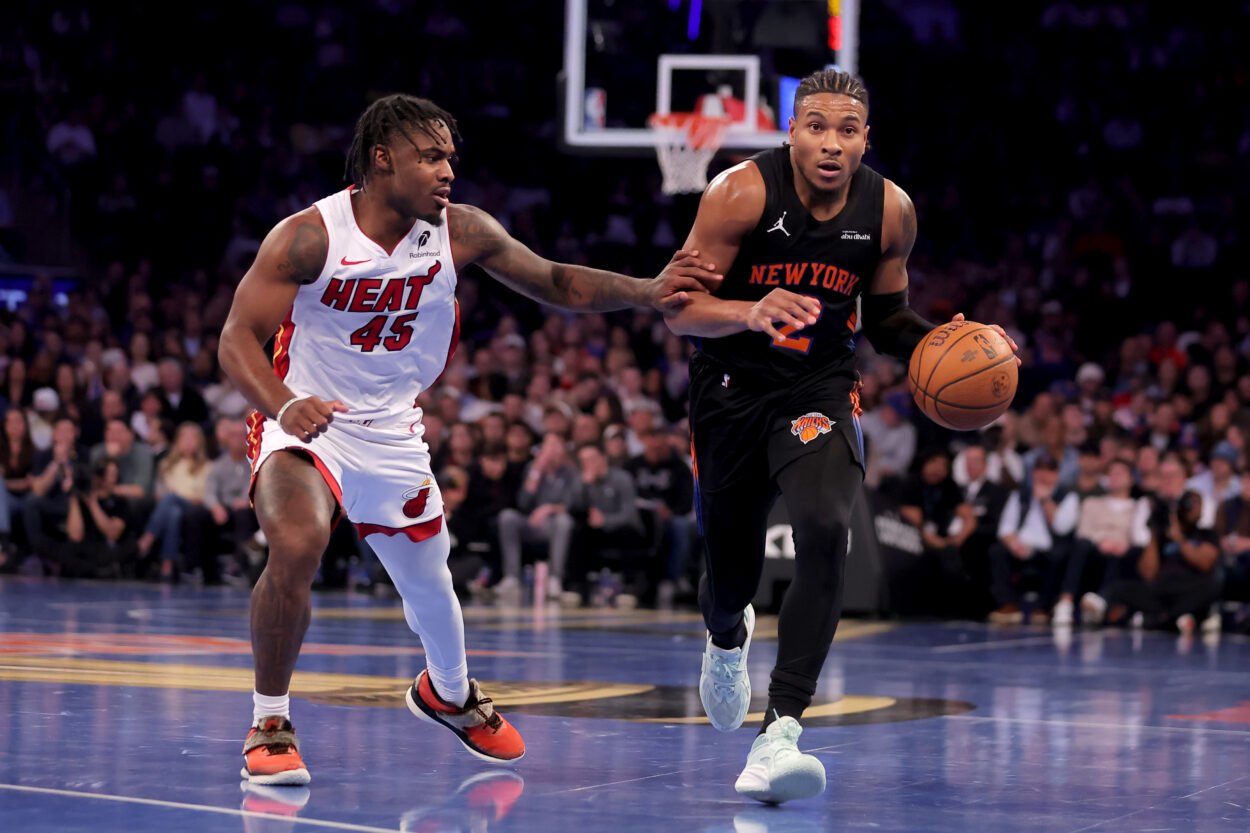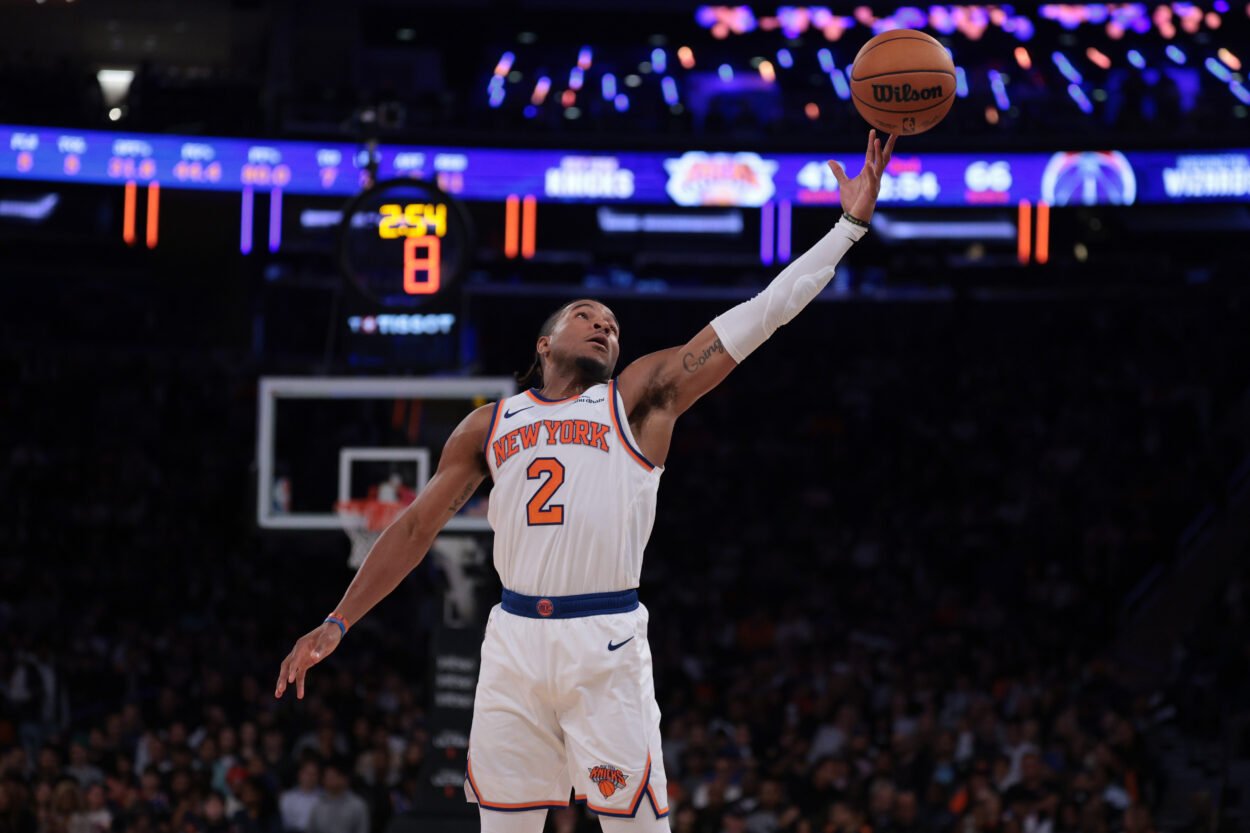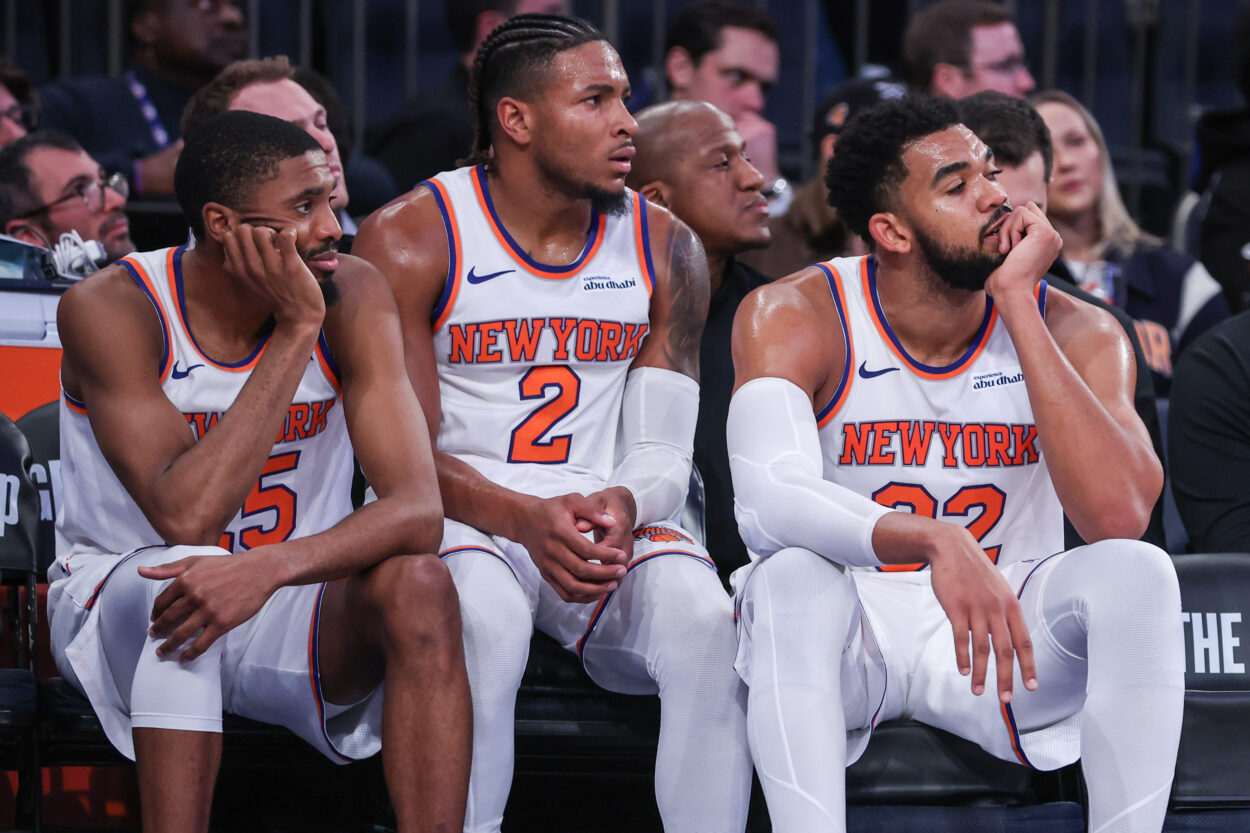
Some absences reveal more about a team than a full-strength lineup ever could. The Knicks learned that quickly once Jalen Brunson went down, forcing them to hand the starting point guard role to Miles McBride — a player who has carved out a niche as a defensive pest and reliable shooter, but not someone equipped to run an NBA offense on his own.
McBride is a valuable rotation piece. He competes, he defends, he spaces the floor. But Friday night’s win still made something painfully clear: the Knicks need more from him, and they need it fast, because the gap between what they’re asking him to do and what he naturally provides is widening.
McBride’s skill set doesn’t translate to full-time lead-guard responsibilities
There’s no questioning McBride’s defensive impact. He pressures ball-handlers, disrupts timing, and brings an edge the Knicks love. But being a starter — especially without Brunson — demands more than defensive energy. It demands control, pacing, and decision-making. And that’s where things get complicated.

McBride isn’t a natural floor general. He doesn’t manipulate defenses with dribble penetration. He rarely bends defenses off the dribble, and he doesn’t consistently create easy looks for teammates. Instead, the Knicks ended up leaning heavily on Josh Hart to run the offense, because Hart’s passing instincts and ball movement kept the team afloat.
When your starting point guard becomes your third or fourth-best distributor on the floor, the structure breaks down.
The numbers show both the strengths and the limitations
This season, McBride is averaging 8.5 points, 2.7 assists, and 2.5 rebounds while shooting .395 from the field and .380 from three. The efficiency from deep is real — he’s a capable catch-and-shoot threat and can punish sagging defenses. But those strengths haven’t translated into consistent production when asked to run the offense.
The issue is simple: he’s not a natural ball-handler. His dribble lacks deception. His handle doesn’t generate separation. And without that, defenses feel comfortable pressing up on him or switching without consequence. McBride’s value drops sharply when he’s forced to create rather than react.
In an ideal world, he’s a hybrid guard who spaces the floor, defends the other team’s best perimeter option, and plays off a primary creator. But when that creator sits, the cracks show.
His role remains stuck between shooting guard and point guard — and it’s costing the Knicks
This is where his development becomes complex. As a shooting guard, McBride’s defense and three-point shot make him a strong fit. As a point guard, the limitations become glaring. He’s caught between roles, not fully fitting either one at the NBA level.
That uncertainty forces the Knicks into awkward rotations. They want his defense on the floor. They need his shooting. But they can’t rely on him to organize a possession or steady the offense during a run. That’s why Hart became the default playmaker — something no team wants from its power-guard glue piece.
The Knicks don’t need McBride to become Brunson. They just need him to raise the floor of his offensive game.

What must change for McBride to thrive while Brunson recovers?
There are a few pathways forward:
• Simplified responsibilities: Limit his time initiating the offense. Let him attack off second-side actions rather than run primary sets.
• More off-ball movement: Turn him into a roaming shooter who relocates and capitalizes on defensive breakdowns.
• Cleaner handles: Even a modest improvement in his dribble package would create more comfortable scoring windows.
• Better continuity with the second unit: McBride shines when paired with players who don’t rely on him to orchestrate.
The Knicks know what he offers. They also know what he isn’t. But with Brunson sidelined, the need for competent guard play increases dramatically.
The Knicks don’t need perfection from McBride — just direction
Miles McBride can help this team win. He already does. But the Knicks are asking him to play above his natural role, and the results reflect that. Until Brunson returns, the Knicks don’t need McBride to transform into a high-level creator. They just need him to steady the ship, hit open shots, and avoid forcing Hart or others into roles they weren’t meant to handle full-time.
If he can do that, the Knicks can survive this stretch. If not, they’ll feel the weight of Brunson’s absence every trip down the floor.
